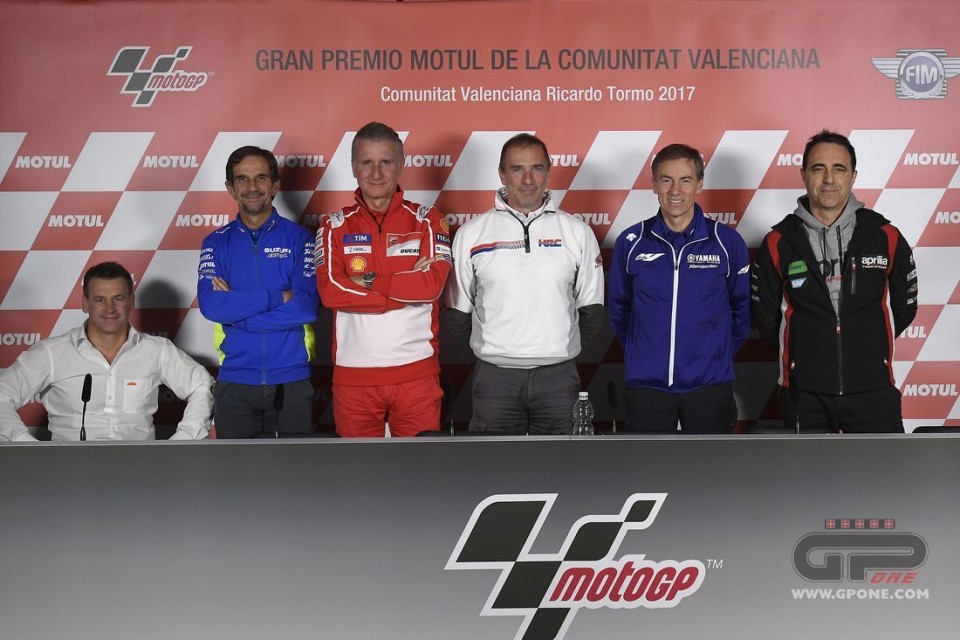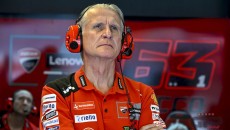Last week there was much talk, and rightly so, about the super time Jonathan Rea did in Jerez, close to the times of top MotoGP riders, if not faster. We do not want to make comparisons between the two worlds, the tyres, the rules and everything else, but we simply want to point out how much of Johnny was in that time and all you have to do is look at the gaps ahead of his SBK colleagues to see that.
So far, we are simply stating the obvious, but the answer to the next question is not such a given: why has no MotoGP team approached Rea in recent years? The Brit dominated and won the last 3 seasons and when he had a shot in the premier class in 2012 as a sub for the injured Stoner, despite almost no experience with the prototype bikes, he did not cut a poor figure at all (8th at Misano and 7th at Aragón, for the record). He is just 30 years old, so he wouldn’t even be too old' and what Zarco is doing (certainly no spring chicken) demonstrates that.
Until a few years ago, SBK champions moved regularly over to MotoGP. Just think of Colin Edwards, Troy Bayliss, Ben Spies and most recently Cal Crutchlow, all people who raced with factory teams too, not simple cameo appearances. This trend seems to have been interrupted.
In Valencia at the final GP of the season, during the press conference with the official MotoGP team managers, the question was asked whether they saw SBK as a pool to pick from in terms of riders and the response was negative.
Lin Jarvis, the number 1 Yamaha man, admitted that “the talent that arrives in the premier class goes through Moto2 and Moto3. Superbike remains an exception.”
This is in spite of the fact that the Japanese manufacturer is directly involved in the factory derivative championship, as is Ducati. Paolo Ciabatti, sports director for the ‘Reds’, thinks along the same lines: “It is easier to manage the young riders in this championship.”
In fact, Yamaha has established collaboration with the VR46 Riders Academy through the Master Camps to raise up Asian riders. Ducati, on the other hand, has been considering a Moto3 bike for its own training grounds for some time now. Even Dorna, the organizer for both championships, moves along other channels to bring riders into the MotoGP paddock. Channels such as Cev, the Rookies Cup, the Asian Talent Cup, the British Talent Cup and, news from just a few days ago, the British minimoto championship.
There is no trace from the factory derivatives and the riders who have come from there are, as Jarvis said, an exception to the rule. The best example is Franco Morbidelli, newly crowned Moto2 world champion, who arrived from a promotional category like Stock600, but after winning it, he moved over to Moto2 without continuing down that path. And then there is Loris Baz, 3 years in MotoGP without any great results and now back in SBK next season.
In other words, the days of Edwards and Spies seem to be gone. Just like the days of the Americans in the ‘90s who cut their teeth at home in the factory derivative championship on bikes that are much different from the current SBK machines.
The point seems to be that SBK is no longer a championship that is complementary to MotoGP, but rather an alternative to it. The problem is that there is very little alternative about it. The same displacement for the bikes that look increasingly like the prototypes and one another, without alternatives to undertake. Just think of how Ducati decided to retire the historic twin-cylinder for a copy of the Desmosedici.
Now the path has been reversed; the MotoGP riders are moving over to SBK when they are unable to find a spot on factory teams. It is a path that began with Biaggi and then was continued over the years by many names, from the late Hayden to Bradl, Melandri and the list gets longer every season. With the risk that the factory derivative championship may be perceived as an elephant graveyard.
Many say that changes need to be made and in many aspects, but perhaps the willingness is not there. In the meantime, we will be waiting for an exception rather than the rule.









